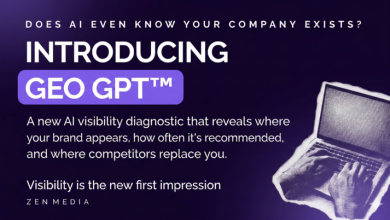
It’s no secret that clinicians today are busier than ever. Elsevier’s Clinician of the Future 2025 report confirms this, revealing that 69% of clinicians globally are seeing more patients than they were two years ago, and 28% say they don’t have enough time to deliver quality care.
For almost three-quarters (73%) of clinicians who feel they lack time for quality care, excessive administrative tasks, like updating health records, are a major contributing factor. In this context, artificial intelligence (AI) is often presented as a potential solution. It promises to streamline workflows, reduce cognitive load, and support clinical decision-making. But while the technology is advancing rapidly, the systems around it, including governance, training, and trust, are not keeping pace.
As a practicing general practitioner (GP), I’ve seen how AI can help surface relevant information quickly, reduce time spent on documentation, and even support differential diagnosis. But I’ve also seen how uncertainty around its use can lead to hesitation, inconsistency, and missed opportunities. If we want AI to truly support clinicians and improve patient care, we must focus not just on what the technology can do, but on how we prepare the people who use it. That starts with building the right foundations.
The Strain on the System
The pressures facing UK clinicians today are not just statistical, they’re structural. High patient volumes, administrative overload and limited time are symptoms of a system that’s struggling to keep pace with demand.
This strain is manifesting in three ways:
- Clinician burnout: The emotional and cognitive toll of working under constant pressure is leading to fatigue, frustration, and in some cases, early exits from the profession.
- Fragmented care: When time is short, continuity suffers. Patients may see different clinicians at each visit, and important context can be lost. This undermines trust and makes it harder to deliver truly personalised care.
- Innovation bottlenecks: Despite the availability of promising tools and technologies, many clinicians lack the time, training, or institutional support to adopt them effectively.
These are the daily realities in clinics across the UK, and unless we address them head-on, even the most advanced technologies will struggle to make a meaningful impact.
AI as a Clinical tool
The pressures facing UK clinicians demand innovation. AI, when thoughtfully implemented, presents a practical and scalable solution to many of the systemic challenges. Many UK clinicians perceive clinical AI tools as saving them time (62%) and empowering them (35%). From streamlining documentation to surfacing relevant clinical insights, these tools are already making a tangible impact in real-world settings.
In my own practice, I’ve seen how AI can reduce administrative burden and support faster, more informed decision-making. But to unlock its full potential, clinicians must be equipped with the training and governance frameworks needed to use it confidently and safely.
Despite AI’s growing adoption, only 17% of UK clinicians say their institution provides adequate AI training, and just 27% believe their institution has effective AI governance. This is a gap that risks undermining both safety and confidence.
Whilst AI can streamline documentation and support faster, more informed decisions, pulling generic tools into clinical workflows creates avoidable risk: unclear data provenance and citations, variable output quality, limited explainability, weak audit trails, and uncertain handling of sensitive data. To build trust and safeguard patients, clinical leaders should champion clinician led governance, publish an approved set of tools that meet standards for transparency, privacy, and role based access, and provide short, scenario based training on safe use and verification. This ensures AI augments care without introducing ambiguity or harm.
Without clear standards, clinicians are left to navigate ethical and legal grey areas on their own. To build trust, governance must be transparent, clinician-led, and grounded in real-world practice.
Training the Future Clinician
Better governance alone isn’t enough. Clinicians must also be equipped with the skills and confidence to use AI tools effectively.
Almost two-thirds (62%) of clinicians globally say that providing guidance and training is a priority for clinical institutions. Without structured support, many clinicians rely on intuition, which can lead to inconsistent use and missed opportunities. To ensure AI is used safely and effectively, training must be embedded into clinical education and tailored to real-world workflows.
Patient Trust in the Age of Algorithms
Training also empowers clinicians to communicate AI’s role clearly to patients, which is essential for maintaining trust, a foundation of effective care that’s increasingly under threat.
With 54% of UK respondents reporting that medical misinformation is hindering patient compliance, the clinician’s role as a trusted guide has never been more critical. As one doctor put it, “AI does not replace clinical judgment; it is merely a tool that should facilitate care processes, but it should not be the one that makes decisions about a life.”
AI can support clearer, more personalised communication, but only if used transparently and responsibly. To strengthen trust, clinicians must be empowered to explain how AI supports their clinical judgement but doesn’t replace it.
A Path Forward
With governance, training, and trust as pillars, we can chart a path toward meaningful AI integration in healthcare. Clinicians are increasingly confident that AI will play a meaningful role in improving care. Globally, over the next two to three years, 70% believe it will save time, 58% expect faster diagnoses, 54% anticipate greater diagnostic accuracy, and 55% predict improved patient outcomes.
But if we want AI to truly elevate clinical care, we must build systems that empower clinicians, reassure patients, and uphold ethical standards. That means embedding governance into practice, making training non-negotiable, and treating trust not as a by-product, but as a prerequisite. The technology is ready. Now it’s time to make our health system ready too.





